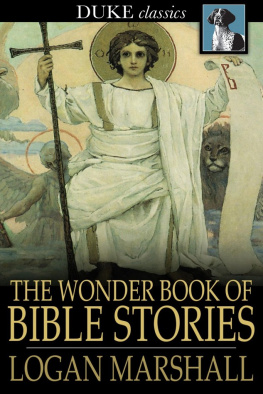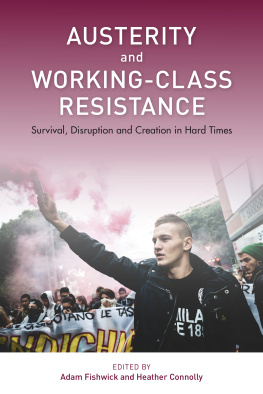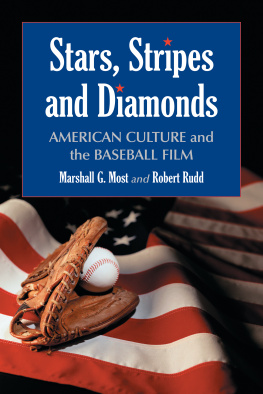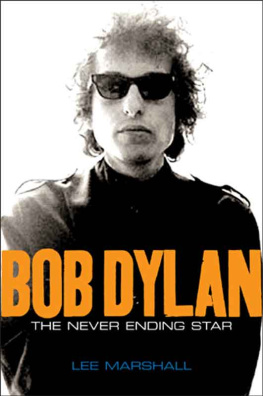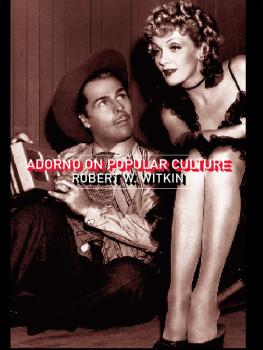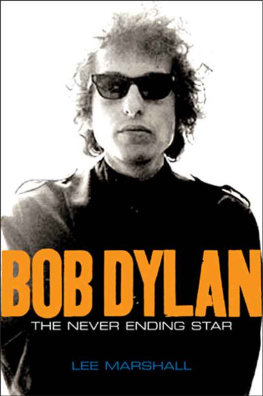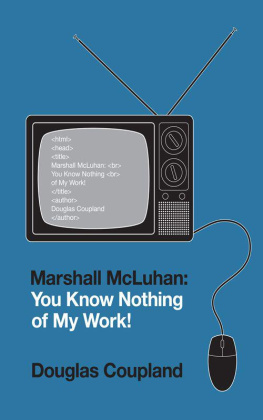Popular Culture
in a New Age
Popular Culture
in a New Age
Marshall W. Fishwick, PhD
2002 by The Haworth Press, Inc. All rights reserved. No part of this work may be reproduced or utilized in any form or by any means, electronic or mechanical, including photocopying, microfilm, and recording, or by any information storage and retrieval system, without permission in writing from the publisher.
First published by
The Haworth Press, Inc., 10 Alice Street, Binghamton. NY 13904-1580
This edition published 2012 by Routledge
Routledge
Taylor & Francis Group
711 Third Avenue
New York, NY 10017 | Routledge
Taylor & Francis Group
2 Park Square, Milton Park
Abingdon, Oxon OX14 4RN |
Parts of the chapter titled Faith Takes a New Face have been excerpted from Great Awakenings: Popular Religion and Popular Culture by Marshall W. Fishwick. Copyright 1995, The Haworth Press, Binghamton, New York. Reprinted by permission.
Cover design by Jennifer M. Gaska.
Library of Congress Cataloging-in-Publication Data
Fishwick, Marshall William
Popular culture in a new age / Marshall Fishwick.
p. cm.
Includes bibliographical references and index.
ISBN 0-7890-1297-9 (alk. paper)ISBN 0-7890-1298-7 (alk. paper)
1. Civilization, Modern1950- 2. Popular culture. 3. Twenty-first century. 4. Postmodernism. 5. Technology and civilization. 6. Civilization, Modern21st century. 7. Popular cultureFore-casting. 8. Popular cultureUnited States. 9. United StatesCivilization1970- I. Title.
CB430 .F576 2001
909.825dc21
200124338
To all my students
who are also my teachers.
ABOUT THE AUTHOR
Marshall Fishwick, PhD, Professor of Interdisciplinary Studies and Director of the American Studies and Popular Culture programs at Virginia Tech in Blacksburg, Virginia, holds several honorary degrees and teaching awards. In 1998, he was honored by the American Culture Association (ACA) with its Lifetime Achievement Award. Dr. Fishwick is co-founder of the Popular Culture Association (PCA). Having served as Fulbright Distinguished Professor in Denmark, Italy, Germany, Korea, and India, he helped establish the American Studies Research Center in Hyderabad, India, which now houses the largest collection of American books in Asia.
A prolific writer, Dr. Fishwick is the author of The Hew, American Style; American Heroes: Myth and Reality; American Studies in Transition; Faust Revisited; Icons of Popular Culture; Parameters of Popular Culture; Great Awakenings: Religious Awakenings in America; Jane Addams; Clara Barton; Preview 2001; Go and Catch a Falling Star; An American Mosaic: Rethinking American Culture History; and Popular Culture: Cavespace to Cyberspace. Fishwick serves as advisory editor to the Journal of Popular Culture and the Journal of American Culture, and is co-founder of the journal International Popular Culture.
In 2000, Dr. Fishwick authored a Millennium Edition of Go and Catch a Falling Star as well as articles about the millennium and the controversial global village. He is currently at work on a book entitled Global Village: or Pillage?
CONTENTS
Tom Wolfe
Peter Rollins
Mary Lee McLaughlin
Katherine Lynde
The dogmas of the past are
inadequate to the stormy present.
Abraham Lincoln
Annual Message to Congress
December 1, 1862
A Different World
Suddenly the world changed. Buildings vanished, the Pentagon burned, bodies fell from buildings. Airlines stopped flying, the stock market closed, all games were canceled. Our world had seemed safe. Not now.
Isms exploded. Terrorism led the way, followed closely by surrealism (was all this a dream?), alarmism, emotionalism. Headlines spoke of DOOMSDAY, APOCALYPSE, END OF THE WORLD. We were at WAR. But this time, we didnt know who or where the enemy was.
A long-dormant ism emergedPATRIOTISM. Our Congress stood on the Capitol steps and sang God Bless America. In London, the Cold Stream Guards played The Star Spangled Banner. Strangers hugged. Spectators wept.
A quick flashback: When the British surrendered to Washington at Yorktown, their band played The World Turned Upside Down. Again? What next?
As the world swirled, the peoples culturepopular culturewas thrust into a New Age. Words once used by a few specialistsTaliban, bin Laden, al-Jezeera, al-Qaeda, Northern Alliance, Mullah Omar, President Musharraf, Kandahar, anthrax, biological warfarewere on every channel, in every headline, on every lip. What next?
Fear fought freedom, and fear seemed to be winning. Security was the new buzz word. The Bears ravaged Wall Street. Ten mutual funds that were the peaks of 1999 became the valleys of 2001, with lifetime losses of over $4.4 billion. Dozens of happy predictions failed.
Who would pay to help the ailing airlines, get gigantic insurance claims settled, rebuild a shattered New York? How could and would we win a war in bleak Central Asia, fought in the shadows, against the harshest of all generals: General Winter? You will be sitting ducks, recently defeated Russian generals warned. Theres no negotiations for Osama bin Laden, President Bush insisted. Bombs away.
Unemployment lines skyrocketed, psychiatrists were deluged with frantic patients, companies and magazines (such as the sixty-six-year-old Mademoiselle) folded, dot.coms became dot.gone. Gone with the wind.
Flags still flew in abundance, churches filled and overflowed, old Guts and Glory movie reruns appeared on television. People were warned they must be patient; polls showed wide support for our allies and policies.
But who could say what might happen next, and when the people would start to sing a different song? Some of us recalled a fine line by the poet John Keats: There is nothing stable in the world; uproars your only music.
These were indeed new times, and they would surely upend our popular culture and try our souls.
Marshall Fishwick
Do I Dare?
Do I dare dispute the greatest teacher I ever had, the impresario of the greatest single course I ever took (not excluding the best Yale had to offer), the most electrifying classroom performer I have ever laid eyes on, the man who is Turner, Tocqueville, and Max Weber all rolled into one and yet radiates an edgy Year-2000 panache? No, I dont. So I offer the following only as a series of random thoughts from one who listened long at his feet.
The case for American exceptionalism has never been stronger. As I stated in my Year-2000 piece, we are Macedon under Alexander the Great, Rome under Julius and Augustus Caesar, Mongolia under Genghis Khan, Turkey under Mohammed II, England under Queen Victoria. Our military, economic, and cultural might is unchallenged and unique in world history. Just think of our cultural might. Here in America we talk a lot about globalization. But just ask any European. He or she will tell you, What you call globalization we call Americanization. Why is Michael Jordan, giant of a sport that fifteen years ago was about as well known in the rest of the world as curling is in this country today, the most famous athlete in the world? Answer: American television, which now streams into every brain in every part of the world where electricity exists. Why have Germans lost their cradle-to-grave socialized medical coverage? Because the government said, We can save a fortune doing it the American wayprivate HMOs. Why do British aristos have to put up with (gnashing their teeth) waiters in the fashionable restaurants who now say, Hi, Im Roy. Ill be your waiter tonight. Let me tell you our specials. Tonight we have day-oat Chilean sea bass baked with a red currant and Damson glaze on a bed of fresh-cut kale with whole roasted garlic cloves. Why? Because the fashionable restaurants in London now cater to all the rich young American investment bankers who are in town knocking down $ 1,000,000 yearly bonuses and driving up townhouse and apartment pricesand driving the formerly fashionable, now dowdy-looking upper-class Brits bananas.





